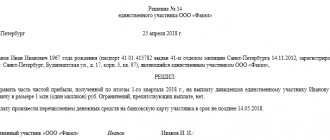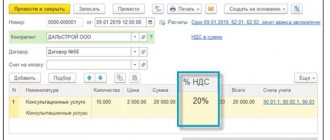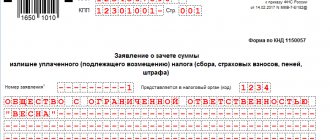From January 1, 2021, 48 international auditing standards (ISAs) will come into force in the Russian Federation. They are introduced by two orders of the Ministry of Finance dated October 24, 2016 No. 192n and dated November 9, 2016 No. 207n.
According to the new requirements of International Standards, instead of the usual form of an audit report on several sheets with standard text, for all new contracts for the conduct of a mandatory audit of an organization, concluded from January 1, 2021, a more information-rich report is drawn up in accordance with ISA. The new form of the auditor's report will contain not only an assessment of the company's financial statements, but also draw users' attention to the most important points in the activities of the audited entity, including what attracted the most attention of the auditor, to what the auditor sees as the most significant risks for organizations. For comparison, in an audit report issued in accordance with Federal Auditing Standards, the auditor expresses only his opinion on the reliability of the accounting records of the audited entity, and does not evaluate the financial statements of the company or describe special aspects in the activities of the audited entity. All this information is reflected in the auditor’s working documents and is not available to a wide range of users. After the introduction of International Standards on Auditing, almost all information obtained by the auditor during the audit must be reflected in the audit report.
The new form of the audit report should contain expanded information not only for accounting, but also for external and internal interested users: shareholders, board of directors, etc., that is, a wider range of people making decisions on business development strategy.
Thus, from January 1, 2021, the new ISA requirements will affect both auditors and audited companies. The volume of data required to analyze the activities of audited organizations is significantly increasing, and the degree of publicity of audit results is also increasing.
THE AUDIT REPORT WILL BE MORE INFORMATIVE AND PUBLIC
Let us remind you that from October 1, 2021, legally significant information about the facts of the activities of legal entities, including information about mandatory audits, will be entered into the Unified Federal Register. In this case, the audit client is obliged to disclose circumstances that have a significant impact on the reliability of the reporting listed in the audit report. Information in the Register must be entered within three working days from the date of occurrence of the relevant fact (paragraph 2, paragraph 9, article 7.1 of Law No. 129-FZ). If this deadline is violated, officials of the organization may be subject to administrative liability, including disqualification.
BUSINESS IMPLICATIONS
Disclosure of additional data in the auditor's report will allow investors and companies' counterparties to make more informed business decisions. However, financial risks increase for the audited company, since increasing the level of transparency of the company’s activities and reflecting all identified business risks in the audit report will automatically lead to an increase in the cost of bank loans for companies if the auditor in the audit report expresses concerns about the activities of the audited organization or sees increased financial risks .
The new rules on disclosure in the auditor's report under ISAs have additional business implications. It is expected that from 2021 the Federal Tax Service will be able to require auditors to disclose audit secrets. Such innovations are set out in the draft Federal Law on Amendments to Articles 82 and 93.1 of Part One of the Tax Code of the Russian Federation. When conducting tax control, the collection, storage, use and dissemination of information about the taxpayer received from audit organizations and individual auditors will be allowed. A tax authority official will have the right to request from auditors documents received during audits and the provision of other audit services that serve as the basis for the calculation and payment of tax by the organization, if they are not submitted in the prescribed manner by the taxpayer himself.
Which organizations undergo mandatory audit under Law No. 307-FZ
According to Federal Law No. 307-FZ of December 30, 2008. The following companies carry out mandatory audits:
- Joint-stock companies - JSC (OJSC, CJSC, PJSC);
- Credit organizations;
- Insurance companies;
- NPF funds (Non-state pension funds);
- Companies with revenue for the previous year exceeding 400 million rubles;
- The amount of assets on the balance sheet (balance sheet currency) for the previous year is more than 60 million rubles;
- Companies whose securities are admitted to organized trading.
Responsibility
There is no separate fine for failure to conduct a mandatory audit.
For everyone - no conclusion, not submitted on time, not posted
There are various fines for failure to comply with the conditions accompanying the mandatory audit:
- Failure to submit an audit report to the Federal Tax Service on time: for an organization - from 3,000 to 5,000 rubles; for an official - from 300 to 500 rubles (Article 19.7 of the Code of Administrative Offenses of the Russian Federation);
- The organization lacks audit reports for previous years: for an official - from 5,000 to 10,000 rubles. (Article 15.11 of the Code of Administrative Offenses of the Russian Federation);
- Non-publication of the audit report on the federal resource - from 5,000 to 10,000 rubles. per official, and for untimely placement - 5,000 rubles. (Article 14.25 of the Code of Administrative Offenses of the Russian Federation).
For JSC - information not disclosed
JSC - Violation of legal requirements relating to the presentation and disclosure of information on financial markets (Article 15.19 of the Code of Administrative Offenses of the Russian Federation):
1. Failure to submit or violation by an issuer, a professional participant in the securities market, a clearing organization, a joint-stock investment fund, a management company of a joint-stock investment fund, a mutual investment fund or a non-state pension fund of the procedure and terms presentation of information (notifications) provided for by federal laws and other regulatory legal acts adopted in accordance with them, as well as presentation of information not in full, and (or) unreliable information, and (or) misleading information, with the exception of cases provided for in Article 19.7.3 of this Code, if these actions (inaction) do not contain a criminal offense, shall entail the imposition of an administrative fine:
- for officials in the amount of 20 (twenty) thousand to 30 (thirty) thousand rubles or disqualification for up to one year;
- for legal entities - from 500 (five hundred) thousand to 700 (seven hundred) thousand rubles.
2. Non-disclosure or violation by an issuer, a professional participant in the securities market, a clearing organization, a joint-stock investment fund, a management company of a joint-stock investment fund, a mutual investment fund or a non-state pension fund, a specialized depository of a joint-stock investment fund, a mutual investment fund or a non-state pension fund, or a person providing services for the public presentation of disclosed information, the procedure and timing of disclosure of information provided for by federal “laws” and other regulatory legal “acts” adopted in accordance with them, as well as disclosure of information not in full, and (or) unreliable information, and ( or) misleading information - entails the imposition of an administrative fine:
- for officials in the amount of 30 (thirty) thousand to 50 (fifty) thousand rubles or disqualification for a period of one to two years;
- for legal entities - from 700 (seven hundred) thousand to 1 (one) million rubles.
Mandatory audit for companies under other Federal laws
- State corporations (No. 7-FZ of January 12, 1996, Article 7.1, clause 2 and Article 7.2, clause 8);
- Microfinance organizations (No. 151-FZ dated July 2, 2010, Article 15, paragraph 4);
- Lottery operators (No. 138-FZ dated November 11, 2003, Article 23)
- Organizers of gambling (No. 244-FZ of December 29, 2006, Art. 6, Clause 12);
- Management companies and specialized depositories (No. 117-FZ dated August 20, 2014, Article 29, paragraphs 1-2);
- Credit cooperatives with over 2,000 employees (No. 190-FZ dated July 18, 2009, Article 31, clause 1);
- Housing savings cooperatives (No. 215-FZ dated December 30, 2004, Article 54, paragraph 1);
- Organizations that develop apartment buildings, attracting funds from participants in shared construction (No. 214-FZ of December 30, 2004, Article 3, Clause 5);
- Tour operators selling tours in the field of outbound tourism, if the amount from the sale of such tours over the previous year amounted to more than 400 million rubles. (No. 132-FZ dated November 24, 1996, Article 17.7);
- Other other organizations in cases established by Federal legislation.
Similar article: Secrets of a successful business - 5 important points
For a complete list of cases for conducting a mandatory audit, see here.
The Ministry of Finance explains
The Russian Ministry of Finance periodically publishes a complete list of mandatory audit criteria on its website or in open sources. Usually - in the form of “Information” collected together from various legislative acts.
The Ministry grouped the cases of mandatory audit very logically and clearly:
- by organizational and legal form;
- by type of activity;
- specific organizations;
- enterprises with certain financial indicators;
- organizations preparing consolidated statements.
Who conducts the statutory audit and when?
According to Federal Law No. 307-FZ of December 30, 2018. “On Auditing Activities”, a mandatory audit can be carried out by:
- Audit companies;
- Individual auditors.
Mandatory audit is carried out annually. The auditor's report must be ready by the time the financial statements are submitted by March 31 of the year following the audit.
When choosing an audit company (individual auditor), you need to:
- Make sure of its independence (No. 307-FZ dated December 30, 2008, Article 8, Part 1)
- Make sure that she is a member of a self-regulatory organization of auditors . Auditors must have a document indicating membership in an SRO. The state register of self-regulatory organizations can be found on the website of the Ministry of Finance of the Russian Federation.
Audit cannot be carried out
The article on the independence of audit organizations and auditors in Law No. 307-FZ of December 30, 2008, Article 8 states that an audit cannot be carried out in some cases when
Auditing organizations whose heads are:
- The founders of the audited entity;
- Close relatives;
- When the audit service carried out the restoration of the accounting of this company;
- When the auditors themselves conduct the accounting of this organization through outsourcing.
Requirements for the inspection organization
It is also important that the auditor or audit organization conducting the audit meets the necessary requirements, namely:
- had a license to perform audits;
- there were no family ties with the management of the company being audited;
- there were no employees among the auditors directly or indirectly related to the company being audited;
- It is prohibited to use the services of a company that has been engaged in accounting for the audited facility for the previous three years.
Answers to frequently asked questions
How to calculate the amount of assets on the balance sheet for a statutory audit?
The amount of assets on the balance sheet for statutory audit is the balance sheet currency (the amount of assets), which is indicated in line 1600 of the balance sheet.
Is it possible to use a collapsed balance of active-liable accounts to avoid a mandatory audit?
No, you can't do that. For example, you cannot subtract accounts payable from accounts receivable even for one counterparty (if you do not have a debt offset act). All indicators in the Debit and Credit balance sheet are reflected in detail. This is directly stated in PBU 4/99 “Accounting statements of organizations”, paragraph 34:
In the financial statements, offsets between items of assets and liabilities, items of profit and loss are not allowed, except in cases where such offset is provided for by the relevant accounting provisions.
For what year should a mandatory audit of a company be carried out if the amount of revenue or assets exceeds the limits?
According to Federal Law No. 307-FZ, the criterion for conducting a mandatory audit is the excess of revenue by 400 million rubles. or balance sheet currency (assets) of 60 million rubles. for the previous year.
Similar article: Profitability of a company - how to determine and calculate?
For example, at the end of 2021 there was an excess. This means that the organization will need to conduct an audit for 2021, that is, at the beginning of 2021, and receive an audit report for 2020.
General points
Today, all companies without exception conduct audits. It can be of different types and serve different purposes. It all depends on a large number of different factors. With the help of an audit, it will be possible to solve a large number of different problems.
But first of all, all types of audits can be divided into two main groups:
- optional;
- mandatory.
Non-mandatory audit usually refers to inspections that are carried out on the initiative of the enterprise itself and its individuals. These could be the founders, executive directors, founder - if there is only one.
At the same time, for some enterprises, the legislative level establishes the need for mandatory testing once in a certain period of time.
The reasons for holding such events may vary. Usually, the first thing that is taken into account is the scope of activity of a particular legal entity.
To avoid various kinds of difficulties, you will need to carefully consider the following issues in advance:
- definitions;
- for what purpose is it carried out;
- legal grounds.
Definitions
All aspects related to the statutory audit procedure are reflected in the current legislative norms.
But at the same time, for a correct interpretation, a correct understanding of this kind of procedure, it will be necessary to understand in advance all the terms used.
The basic concepts, the knowledge of which is strictly necessary, include the following:
- audit;
- proactive audit;
- auditing activities;
- auditor;
- types of audit services;
- accounting automation;
- Accounting;
- assessment activities.
| Under the term "audit" | This involves conducting a thematic audit. It can be directed, as well as general. For example, an audit of accounts receivable or accounts payable is often carried out. At the same time, an audit by tax authorities is almost always general |
| Initiative audit | An inspection initiated by the enterprise itself. Usually mandatory is also classified as proactive |
| Auditing activities | This term refers to the process of conducting audit activities by a specific enterprise. At the same time, there is regulation of such activities at the state level. |
| Auditor | An individual who carries out inspections of this type |
| Types of audit services | List of services provided by a specific auditing company |
| Accounting | The procedure for recording all business transactions that take place in the enterprise |
| Automation of accounting | The process of using special software with the help of which all business activities are reflected in documentation with minimal human intervention. This way you can minimize the likelihood of making any errors when preparing reports. |
| Tax accounting | The process of reflecting information related to the formation of contributions to the state budget. An enterprise usually pays quite a lot of attention to this section of reporting. |
| "Evaluation activity" | This concept refers to actions that allow you to determine the cost of something. This procedure is mandatory when conducting an audit. Moreover, regardless of its type – proactive, including |
For what purpose is it carried out?
Regardless of the type of audit required, it allows you to simultaneously solve various types of problems. The main ones today include the following.
With the help of such a check it will be possible to achieve the following goals:
Mandatory audit is assigned to enterprises that, in the opinion of government agencies, require special control.
Legal grounds
Today, regardless of the type of audit, the goals of its implementation, it is necessary to focus on
This regulatory document includes the following main sections:
| What is the activity of an auditor, what responsibilities does he have? |
| Includes the full liver of legislative acts regulating the activities of the auditor |
| Requirements for the activities of companies specializing in auditing |
| Basic requirements for a person who can engage in such activities |
| How is an auditor's report issued and what is included in it? |
| What is meant by the independence of audit institutions, as well as the auditors themselves? |
| Grounds for revocation of an audit certificate, the procedure for carrying out such a procedure itself |
| List of rights and responsibilities of the auditor himself, the audit company |
| List of rights and obligations of the legal entity whose audit is being carried out |
| The procedure for state regulation of the activities of auditors |
| What is advice for this type of activity? |
| The issue of the activities of a self-regulatory organization is covered |
| What are the requirements for those wishing to become a member of a self-regulatory organization? |
| The procedure for compiling a register of audit companies is regulated |
| Disciplinary and other sanctions against auditors whose activities are unsatisfactory or have obvious violations |
Opportunity to reduce costs for statutory audits in 2021
The introduction of a new form of auditor's report and new auditing standards will seriously affect the company's costs for mandatory audit, because will require a significant increase in the workload both on the accountant and financial management of the company, and on the auditors, which will certainly lead to an increase in audit costs.
However, for a number of companies, the government has left a legal way not to apply the auditing standards that have come into force. Thus, if the audit agreement was concluded before January 1, 2017, then the audit can be carried out according to 2016 standards, thereby allowing companies to delay the increase in costs for mandatory audits in 2021 for at least one year.








